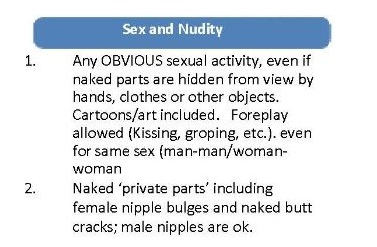Lots of people are outraged by the glaring defects in Apple’s maps — now a mandatory part of IoS6. (Jean-Jouis Gassee takes a more nuanced view.) But David Talbot’s Technology Review piece rightly focusses on Apple’s Kremlin-like PR response to the fiasco.
This disaster (see “Smartphone Makers Can’t Afford to Mess Up Mapping”) is still unfolding. It’s worse than just being a bad service. Given the ubiquity of these devices, it’s not hard to imagine people getting sent down Class 4 unmaintained roads in rural areas and getting stuck in ditches. Others may be getting directed the wrong-way on one-way streets and posing a danger of head-on collisions. It’s only a matter of time before anecdotes like these will start emerging.
Apple is in full spin mode. Trudy Miller, an Apple spokeswoman, released this statement yesterday: “Customers around the world are upgrading to iOS 6 with over 200 new features including Apple Maps, our first map service. We are excited to offer this service with innovative new features like Flyover, turn by turn navigation, and Siri integration. We launched this new map service knowing it is a major initiative and that we are just getting started with it. Maps is a cloud-based solution and the more people use it, the better it will get. We appreciate all of the customer feedback and are working hard to make the customer experience even better.”
Personally I’m going to avoid updating to IoS6 for the time being. But what I’d really like to know is how the screw-up was allowed to happen in a company that’s usually good at getting working stuff out on time. And isn’t it strange how even a smart company doesn’t get it that old-style PR responses don’t wash any more. The right thing to have done would have been to say: “we f****d up and here’s a voucher to compensate you for any inconvenience that the maps might have caused”.
This is like Antennagate all over again.
MORE: Business Insider thinks that part of the problem may be due to the fact that Apple hasn’t thrown enough resources at the mapping application:
In June, we talked to a pair of Googlers involved in its mapping product, and they said that Google has 1,100 full time employees and 6,000 contractors working on its mapping products. Those 7,000 people do all sorts of granular work.
What do these 7,000 people do? Our source says they are “street view drivers, people flying planes, people drawing maps, people correcting listings, and people building new products.”
Apple is reportedly hiring developers to improve its Maps product.
Seems like it’s going to take a lot more than that.



